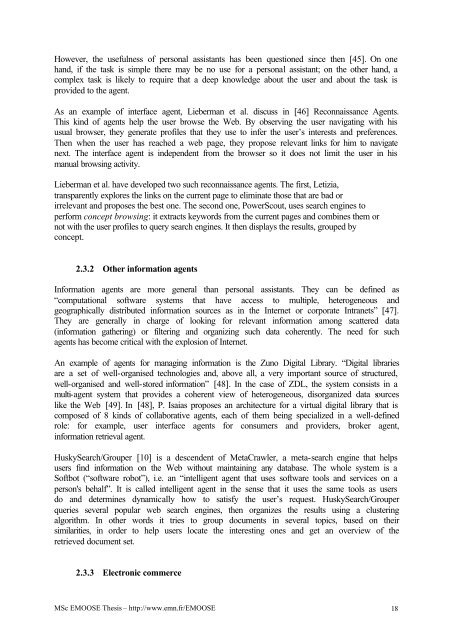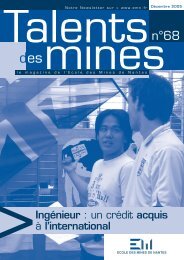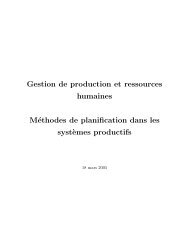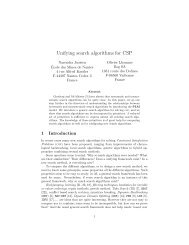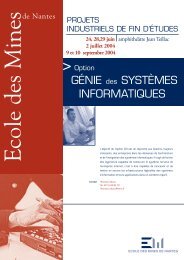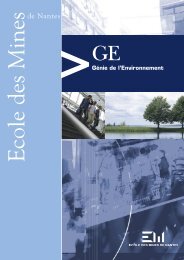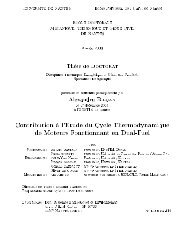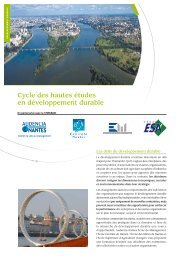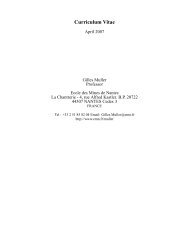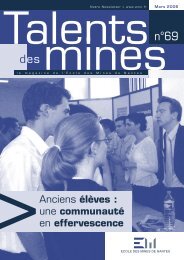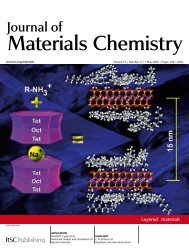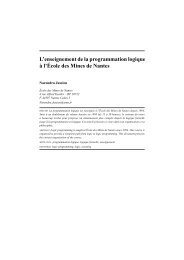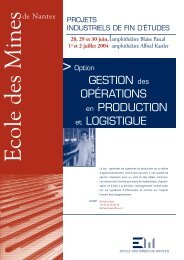pdf - 395 K - Ecole des mines de Nantes
pdf - 395 K - Ecole des mines de Nantes
pdf - 395 K - Ecole des mines de Nantes
You also want an ePaper? Increase the reach of your titles
YUMPU automatically turns print PDFs into web optimized ePapers that Google loves.
However, the usefulness of personal assistants has been questioned since then [45]. On onehand, if the task is simple there may be no use for a personal assistant; on the other hand, acomplex task is likely to require that a <strong>de</strong>ep knowledge about the user and about the task isprovi<strong>de</strong>d to the agent.As an example of interface agent, Lieberman et al. discuss in [46] Reconnaissance Agents.This kind of agents help the user browse the Web. By observing the user navigating with hisusual browser, they generate profiles that they use to infer the user’s interests and preferences.Then when the user has reached a web page, they propose relevant links for him to navigatenext. The interface agent is in<strong>de</strong>pen<strong>de</strong>nt from the browser so it does not limit the user in hismanual browsing activity.Lieberman et al. have <strong>de</strong>veloped two such reconnaissance agents. The first, Letizia,transparently explores the links on the current page to eliminate those that are bad orirrelevant and proposes the best one. The second one, PowerScout, uses search engines toperform concept browsing: it extracts keywords from the current pages and combines them ornot with the user profiles to query search engines. It then displays the results, grouped byconcept.2.3.2 Other information agentsInformation agents are more general than personal assistants. They can be <strong>de</strong>fined as“computational software systems that have access to multiple, heterogeneous andgeographically distributed information sources as in the Internet or corporate Intranets” [47].They are generally in charge of looking for relevant information among scattered data(information gathering) or filtering and organizing such data coherently. The need for suchagents has become critical with the explosion of Internet.An example of agents for managing information is the Zuno Digital Library. “Digital librariesare a set of well-organised technologies and, above all, a very important source of structured,well-organised and well-stored information” [48]. In the case of ZDL, the system consists in amulti-agent system that provi<strong><strong>de</strong>s</strong> a coherent view of heterogeneous, disorganized data sourceslike the Web [49]. In [48], P. Isaias proposes an architecture for a virtual digital library that iscomposed of 8 kinds of collaborative agents, each of them being specialized in a well-<strong>de</strong>finedrole: for example, user interface agents for consumers and provi<strong>de</strong>rs, broker agent,information retrieval agent.HuskySearch/Grouper [10] is a <strong><strong>de</strong>s</strong>cen<strong>de</strong>nt of MetaCrawler, a meta-search engine that helpsusers find information on the Web without maintaining any database. The whole system is aSoftbot (“software robot”), i.e. an “intelligent agent that uses software tools and services on aperson's behalf”. It is called intelligent agent in the sense that it uses the same tools as usersdo and <strong>de</strong>ter<strong>mines</strong> dynamically how to satisfy the user’s request. HuskySearch/Grouperqueries several popular web search engines, then organizes the results using a clusteringalgorithm. In other words it tries to group documents in several topics, based on theirsimilarities, in or<strong>de</strong>r to help users locate the interesting ones and get an overview of theretrieved document set.2.3.3 Electronic commerceMSc EMOOSE Thesis – http://www.emn.fr/EMOOSE 18


